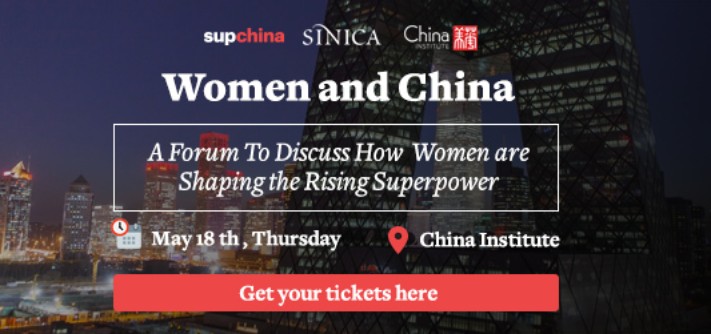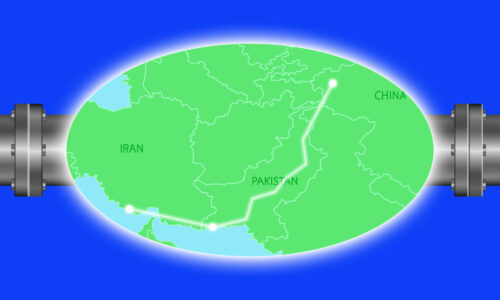Chinese cosmocrats — from mission control to the governor’s office
A roundup of today’s top China news. Get this free daily digest delivered to your inbox by signing up at supchina.com/subscribe.

Rocket men for the government
During the first 30 years of “reform and opening up” (1978–2008), China’s government was dominated by men with a background in hydraulic, chemical, civil, or mechanical engineering. Could aerospace engineers be the next dominant class of technocrats? The South China Morning Post looks at four former aerospace engineers who recently have become provincial governors:
- Ma Xingrui 马兴瑞, former general manager and Party secretary of China Aerospace Science and Technology Corporation (CASTC), acting governor of Guangdong Province since 2016, now governor.
- Xu Dazhe 许达哲, former chief administrator of the China National Space Administration (CNSA), governor of Hunan Province since 2016.
- Chen Qiufa 陈求发, former director of CNSA, governor of Liaoning Province since 2015.
- Yuan Jiajun 袁家军, former president of China Academy of Space Technology, appointed acting governor of Zhejiang Province last week. (Zhejiang is seen as a powerbase of President Xi Jinping.)
The South China Morning Post quotes CASTC missile scientist Bao Weimin 包为民 on reasons for the success in politics of some of his former colleagues: “A handful of people from our company have become governors in recent years. I think it has something to do with principles we follow here… We don’t cook the books. The satellites and rockets won’t work if we do.” But provincial politics may prove more difficult than the rocket men anticipate: The article quotes a missile scientist at Beihang University: “When they were managers at the aerospace corporation, they stuck to their own opinions. That could be a problem at local governments.”
Inner Mongolia forest fire under control
On May 3, we noted that authorities had organized more than 8,300 people to fight a huge forest fire in Daxing’anling Prefecture in Inner Mongolia, which had spread to over 5,000 hectares of wooded mountains. Today, according to Xinhua News Agency, the blaze is under control, with “nearly 5,000” police officers and firefighters working in the area (pictured above).
Women and China:
A Forum on How Women Are Shaping the Rising Global Power
The China Project’s conference in New York on May 18 will feature 20 women leaders in Chinese technology, business, and culture. Please click here to learn more and buy tickets.
China’s boycott diplomacy
The Financial Times has published an article (paywall) on the way “China wields power with boycott diplomacy,” which looks at the recent — and ongoing — state-encouraged boycott of South Korean companies in reaction to their country’s deployment of the American THAAD missile defense system. The FT says that “China has been implementing such boycotts against its foes for more than 100 years and it knows how to make them hurt economically and politically,” adding that “Beijing must play a delicate balancing act to ensure that its embargoes neither damage the Chinese economy nor unleash forces…that could threaten one-party rule.” Countries that have felt a commercial squeeze from Beijing in retaliation for a political decision or a perceived slight in recent years include Japan, the Philippines, Norway, and the U.K. The article quotes from a recent column by The China Project’s Kaiser Kuo: “Do we really need to worry so much about Chinese nationalism?”
Trump leans in, Xi strings him along?
- After months of mixed messages on China and North Korea from the White House, the latest statement comes from U.S. secretary of state Rex Tillerson, who, according to Reuters, said that “the Trump administration had been ‘leaning hard into China…to test their willingness to use their influence, their engagement with the regime.’”
- China itself is losing patience with North Korea. Hu Xijin 胡锡进 is editor of the Party-owned nationalist tabloid Global Times, a newspaper that Graham Webster recently pointed out on The China Project is “non-authoritative” but can indicate “domestic pressure that the Chinese government may be under.” Hu posted to Weibo (in Chinese) on May 4:
North Korea…must be clear on China’s bottom line. I hope that sanctions, especially oil embargoes, are the language they will eventually understand. I know that sanctions are painful, but that’s better than war on the Korean Peninsula.
- Respected China-watcher Bill Bishop (who is interviewed in this week’s Sinica Podcast) tweeted (abbreviations expanded):
North Korea turning out to be very useful issue for P.R.C. Expect Xi to string Trump along with marginal moves while not changing strategic calculus.
Drug surcharges banned, fees capped at public hospitals
In March, we noted that the Beijing city government had issued a set of regulations to address one of the Chinese healthcare system’s worst problems: overprescribing and overcharging for drugs. This week, Caixin reports that joint guidelines were published on Tuesday “by seven government authorities, including the National Health and Family Planning Commission (NHFPC) and the National Development and Reform Commission (NDRC),” which prohibit public hospitals from adding drug surcharges to patients’ bills starting in September, and from raising fees by more than 10 percent this year. The rules cover all drugs except for prepared traditional Chinese medicine.
—Jeremy Goldkorn, Editor-in-Chief
Sinica Podcast: Bill Bishop on what it takes to be a good China-watcher
Kaiser Kuo speaks with a noted authority on China about how to keep up with one of the world’s most dynamic countries.
This issue of the The China Project newsletter was produced by Sky Canaves, Lucas Niewenhuis, Jia Guo, and Jiayun Feng. More China stories worth your time are curated below, with the most important ones at the top of each section.
BUSINESS AND TECHNOLOGY:
Xiaomi launches 12 billion yuan fund to develop new products
Caixin reports that Chinese smartphone maker Xiaomi has partnered with the Hubei provincial government and other partners to set up the “Yangtze River Xiaomi Industry Fund.” The initiative is expected to raise 12 billion yuan ($1.7 billion) for the development of Xiaomi products, which range from smartphones to internet-connected TVs and smart home appliances, as well as software and products that grow the Xiaomi ecosystem of tech and services.
The Beijing-based company, which is worth $46 billion, has attempted to reclaim the Chinese market after falling behind in the country’s smartphone arms race in the past year, Forbes reports. It is China’s fourth-largest smartphone maker, after Huawei, Vivo, and Oppo. Xiaomi made its name as an online-sales-only company, but has recently been hurt by mediocre reviews and a lack of retail distribution. It is now making a push to open brick-and-mortar stores, and announced plans to open more than 200 Mi Home stores in China this year, bringing the total number of stores to 300. Outside of China, India is the biggest market for the company. The smartphone maker is currently the second-largest smartphone vendor in India after Samsung. India’s first Mi Home store is expected to open next week in Bangalore.
- China’s risk crackdown is rattling its municipal bond market / Bloomberg
“Set up in 2015 to bring transparency to local-government borrowing practices, the new market benefited from the perception that Beijing had the provinces’ backs, with yields largely on par with the sovereign despite some weak municipal balance sheets. Not anymore — a clampdown on risk and record levels of debt in China’s financial system is spurring a reassessment of the market.” - Banking regulator warns of overseas lending risks / Caixin
“The head of China’s banking regulator warned in a recent closed-door meeting about the mounting risk in banks’ overseas loans. Guo Shuqing, chairman of the China Banking Regulatory Commission (CBRC), emphasized during the internal government meeting on April 21 that the banking sector must safeguard against foreign-exchange risks.” - China’s Hawaii plans a $3 billion medical tourism hotspot / Bloomberg
On Hainan Island, “local officials and companies are investing billions of dollars” to attract wealthy Chinese patients with the promise of advanced “treatments for diseases like cancer that are available abroad, but don’t yet have regulatory approval in China.” - South Korea carmakers see China sales plummet further amid political tensions: sources / Reuters
- China’s high rollers are phoning in bets to Manila’s casinos / Bloomberg
POLITICS AND CURRENT AFFAIRS:
Belt and Road: A ‘China solution’ or a path to nowhere?
As Beijing prepares to host 28 world leaders on May 14-15 for a summit on China’s ambitious “One Belt, One Road” (OBOR) global infrastructure initiative, a wide array of commentators and financial institutions are sizing up the plan.
Bloomberg reports that the bank Credit Suisse has concluded that China may pour more than $500 billion over the next five years into OBOR projects, and confirmed the mainstream perception that the projects are likelier to further China global influence under a less globally engaged, Trump-led U.S. The Japan-led Asian Development Bank confirmed that it “seeks to cooperate, not compete, with China” on OBOR projects, Reuters notes. The Financial Times explains (paywall) how OBOR is now seen as part of a “China solution,” as one expert put it, to spur economic development worldwide. China’s Xinhua News Agency, meanwhile, is kicking into gear defending the plan in an editorial titled “Belt & Road Initiative win-win, not a solo show.”
Meanwhile, OBOR continues to draw criticism as little more than a rhetorical basket filled primarily with pre-existing projects, particularly those in Pakistan, which have political problems on their own that could torpedo the wider initiative. Mihir Sharma writes in a column for Bloomberg that the political risks of the OBOR projects in Pakistan are underrated, and that “China usually struggles to live up to such big promises” as those offered to Pakistan. George Magnus points out in a piece for Nikkei Asian Review that the projects in Pakistan date back to 2002, long before Xi Jinping’s rollout of OBOR in 2013. And the Financial Times piece linked above notes that with stalled projects in Kazakhstan and Thailand, “so far, little outside China has been completed.”
- North Korea denounces ally China, saying it should be grateful for its ‘protection’ / SCMP
- Opinion: KCNA critique won’t ease mounting nuke tension / Global Times
More sniping between Chinese and North Korean state media. See the The China Project summary of earlier commentary. - Xi stresses rule of law, cultivating legal talent / Xinhua
President Xi Jinping continues his rhetoric on the rule of law, which has become a key theme of his presidency. In this latest round of state promotion of the idea, Xinhua quotes Xi as saying that “we should have confidence in developing our own legal disciplines and contribute to global rule of law with Chinese wisdom and practice” and that “China should take successful legal practices worldwide as reference, but not simply copy them.” - Outrage as Hong Kong democracy campaigners urge U.S. to get tough with Beijing / SCMP
- Beijing hit by new air pollution crisis as huge sandstorm blows in / The Guardian
- Trees or shrubs? Study disputes success of China’s $100 billion forest effort / NYT (paywall)
SOCIETY AND CULTURE:
Tai chi master takes a beating
It took only 10 seconds for mixed martial arts (MMA) fighter Xu Xiaodong 徐晓冬 to destroy tai chi master Lei Lei 雷雷 in an exhibition fight held on April 27, but the ensuing tai chi-MMA debate has been such a widely discussed topic on Chinese social media since then that even Alibaba chairman Jack Ma 马云 weighed in.
The buzz began with a short video circulated on the Chinese social media platform Weibo last week, in which the modern-style fighter unleashes a series of punches on his opponent’s face and knocks him down almost immediately after the fight starts. The tai chi master is then seen lying on the ground bleeding while two men from the crowd help him up.
The fight was initiated by Xu, who, according to Sixth Tone, said repeatedly that his goal is to prove that Lei is not even remotely comparable with him when it comes to real combat. In an interview (in Chinese), Xu said that “90 percent of traditional Chinese martial arts are just self-brainwashing and self-deception,” and “this line of thinking passed on from generation to generation.” Xu also invited other self-proclaimed tai chi masters to challenge him. On Weibo, many commenters questioned (in Chinese) Xu’s motive, accusing him of attracting publicity by saying arrogant things, while others applauded his courage to expose the weakness of tai chi in a real fight.
On the other side, after the embarrassing loss, Lei insisted (in Chinese) that the reason why he lost the fight is because he didn’t use internal power, a tai chi technique that he said “can’t be easily activated, as it might cause the opponent’s death.” The explanation was unconvincing to most commenters. “His brain must have been damaged during the fight,” one person ridiculed (in Chinese).
Jack Ma commented (in Chinese) on his Weibo account that the fight is, in fact, a “show” that doesn’t deserve such public attention. “The fight didn’t involve any techniques and is not watchable at all. The only special thing about this is the large audience online. They want the show to grow bigger and bigger,” Ma wrote.
Work hard and love your country: May 4th movement at 98
This year is the 98th anniversary of the May 4th movement, a political and cultural movement broadly supported by students protesting the Chinese government’s weak response to the Treaty of Versailles and the granting of Shandong to the Japanese under former German concessions. The May 4th movement was against Western colonization and imperialism, but is often connected to the New Culture movement, which rejected the strictures of aspects of traditional Chinese culture and strove to build a society based on Western ideas of science and democracy.
Although the intellectual foment of the May 4th movement provided the Communist Party — founded in 1921 — with some of its animating spirit, the Party has an awkward relationship with it: How to energize the youth with patriotism, maintain a patina of anti-imperialist credibility, yet avoid too much chattering about democracy? Xi Jinping’s answer was given in a speech to students at China University of Political Science and Law in Beijing in advance of May 4: The Party is engaged in a campaign to make its primary message about patriotism and hard work. The People’s Daily has an article (in Chinese) about Xi’s speech, or you can refer to this handy English infographic by the China Daily.
- China’s Migrant Workers Staying Closer to Home / Caixin
“China’s workforce is staying closer to home, according to an official report that indicates the number of rural migrant workers working locally has risen by 26% over the past seven years.” - Bathing Baby Buddha / China Heritage
“The Eighth Day of the Fourth Month 四月初八 is celebrated as the Buddha’s Birthday. Falling on the 3rd of May 2017 the festivities are sandwiched between China’s 1st of May International Labor Day 国际劳动节, a public holiday that lasts until the 2nd of May and marked by a long weekend, and Youth Festival 青年节 on the 4th of May.” - ‘The Fate of the Furious’ becomes highest grossing film ever in China / LA Times
- ‘Manchester by the Sea’ passes China censorship / China Film Insider
- Fujian villages break 300-year marriage ban / Sixth Tone
- FIFA boosts China’s hopes of hosting 2030 World Cup / ESPN FC
- Video: Foreigner tests Chinese locals on their Chinese / Monkey Abroad YouTube channel







